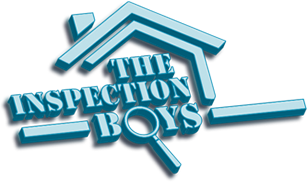Buying a home is one of the most significant investments individuals make in their lifetimes. Ensuring the safety and quality of these properties is of utmost importance, and that’s where home inspectors come in. They play a crucial role in the real estate industry, providing expert assessments of residential properties to help buyers make informed decisions. In this article, we will delve deep into the world of home inspection, exploring the path to becoming a home inspector, the challenges they face, the impact of technology on their work, the business aspect of their career, and the rewards that come with this profession.
How and What of a Home Inspection Career
A. Educational Requirements and Certifications
Becoming a licensed home inspector requires specific educational qualifications and certifications. While the requirements can vary by location, most jurisdictions demand completion of a home inspection training program. These programs cover various topics, such as building systems, structural components, electrical systems, plumbing, and more. Aspiring home inspectors often enroll in courses accredited by professional organizations like the American Society of Home Inspectors (ASHI) or the International Association of Certified Home Inspectors (InterNACHI).
Additionally, gaining certification from a reputable organization enhances credibility and trust in the profession. Earning certifications, such as the Certified Professional Inspector (CPI) designation from InterNACHI or the ASHI Certified Inspector title, demonstrates a commitment to excellence in the field.
B. Personal Attributes
Beyond formal education and certifications, successful home inspectors possess specific personal attributes that contribute to their effectiveness. Strong communication skills are essential, as home inspectors must effectively convey their findings to clients in a clear and concise manner. Attention to detail is paramount, as even minor issues can have significant implications for a property’s value and safety. A methodical and analytical approach is also necessary to conduct thorough inspections and identify potential problems.
C. Learning from Experienced Professionals
Many aspiring home inspectors benefit from hands-on experience and mentorship under seasoned professionals. Working alongside experienced inspectors provides invaluable insights into the nuances of the job, the challenges they may face, and how to overcome them effectively. Mentorships also offer opportunities to observe different inspection styles and methodologies, broadening the range of skills and knowledge a new home inspector can acquire.
The Role of a Home Inspector
A. The Scope of Inspections
The responsibilities of a home inspector extend beyond merely walking through a property. During an inspection, they assess various components and systems of a home, including the foundation, roof, HVAC (Heating, Ventilation, and Air Conditioning) systems, electrical wiring, plumbing, insulation, and more. By evaluating these critical elements, home inspectors help potential buyers understand the condition of the property and identify any issues that may require attention or negotiation before finalizing the purchase.
B. Real-World Challenges
Home inspectors encounter a range of challenges during their careers. One of the primary difficulties is striking the right balance between objectivity and responsibility. While a home inspector’s role is to provide unbiased assessments, they also hold a responsibility to safeguard the interests of their clients. Navigating this fine line requires ethical decision-making and the ability to deliver honest and constructive feedback without causing unnecessary alarm.
Additionally, inspectors may encounter situations where they must address difficult conversations with clients regarding the severity of certain issues found during inspections. These interactions require tact and professionalism to manage clients’ expectations and provide them with accurate information to make informed decisions.
C. Balancing Objectivity and Responsibility
Home inspectors are often caught in a delicate balancing act of remaining objective while being responsible for their client’s interests. Their primary duty is to provide accurate and honest evaluations, regardless of the potential impact on a real estate transaction. They must avoid conflicts of interest and resist any external pressures that could compromise their impartiality.
To achieve this balance, professional home inspectors adhere to strict codes of ethics established by reputable industry organizations. These codes emphasize the importance of maintaining independence, avoiding financial incentives that could influence judgments, and prioritizing the well-being of their clients above all else.
The Impact of Technology on Home Inspections
A. Evolving Tools and Equipment
Advancements in technology have significantly transformed the home inspection process. Inspectors now utilize a range of sophisticated tools and equipment to conduct thorough assessments. These tools may include infrared cameras to detect hidden moisture or insulation issues, gas detectors to identify leaks, and thermal imaging devices to assess energy efficiency.
Furthermore, specialized software and mobile applications have streamlined the reporting process. Digital reporting systems enable inspectors to generate comprehensive inspection reports efficiently, complete with images and annotations, to be shared electronically with clients.
B. The Role of Drones and Cameras
Drones and high-resolution cameras have revolutionized the way home inspectors access and document hard-to-reach areas. Roof inspections, for instance, often involve potential hazards for inspectors. With the use of drones, inspectors can safely capture aerial footage, identifying roofing issues without putting themselves at risk.
Similarly, high-quality cameras with advanced zoom capabilities enable inspectors to closely examine distant or inaccessible areas, such as the tops of chimneys or crawl spaces, without the need for physical entry.
C. Digital Reporting and Data Management
Digital reporting not only streamlines the inspection process but also improves data management. With digital records, inspectors can easily access and retrieve past inspection reports, helping them identify patterns and recurring issues in specific types of properties.
Moreover, digital reporting facilitates communication with clients by providing a user-friendly format to present findings, images, and recommendations. Clients can quickly review reports, share them with other stakeholders involved in the property transaction, and make informed decisions more efficiently.
Navigating the Business of Home Inspection
A. Setting Up a Home Inspection Business
Establishing an independent home inspection business involves careful planning and adherence to local regulations. Home inspectors often need to register their businesses, obtain appropriate licenses, and secure liability insurance. They must also decide on pricing structures, considering factors such as the size and location of properties, the scope of inspections, and the level of expertise offered.
B. Marketing and Networking
For home inspectors, building a client base and establishing a reputable brand are essential for success. Networking within the real estate community, including real estate agents, brokers, and property managers, can lead to valuable referrals. Participating in industry events, conferences, and trade shows can also help inspectors connect with potential clients and showcase their expertise.
In the digital age, an online presence is crucial. Maintaining a professional website and leveraging social media platforms can help home inspectors reach a wider audience and create a positive impression on potential clients.
C. Managing Client Relationships
Providing exceptional customer service is vital to a home inspector’s business. Satisfied clients are more likely to recommend the inspector to others and become repeat customers. Timely communication, responsiveness to client inquiries, and the ability to explain complex issues in simple terms contribute to positive client experiences.
Inspectors must also manage their schedules effectively to accommodate clients’ timelines while ensuring they have ample time to conduct thorough inspections and prepare comprehensive reports.
Career Growth and Specialization
A. Advancement Opportunities
With experience and expertise, home inspectors can explore various career advancement opportunities. Some choose to become consultants, offering specialized services to real estate professionals or property investors. Others may pursue careers as instructors, sharing their knowledge and insights through educational programs or as part of home inspection training courses.
B. Specializing in Niche Markets
As the home inspection profession evolves, inspectors have the option to specialize in niche markets. Some may focus on historic properties, which require a unique set of inspection skills due to their age and construction methods. Others
may specialize in eco-friendly or sustainable homes, where a deep understanding of energy-efficient systems and green building practices is crucial. By honing their expertise in specific areas, inspectors can position themselves as experts within the industry, attracting clients seeking specialized services.
Challenges and Rewards of a Home Inspection Career
A. Work-Life Balance
The life of a home inspector can be demanding, often involving irregular working hours and a fluctuating schedule. Inspections may occur on weekends or evenings to accommodate clients’ availability, especially during peak real estate seasons. Balancing personal life with professional commitments can be challenging, and inspectors must learn to manage their time effectively to avoid burnout.
However, the flexibility of the job can also be a significant advantage for those who appreciate varied workdays and enjoy being outdoors. The ability to set one’s schedule and take on as many or as few assignments as desired can offer a sense of independence and work-life integration.
B. Job Satisfaction
Despite the challenges, home inspectors often find great satisfaction in their work. Knowing that their assessments play a pivotal role in helping individuals and families make informed decisions about their homes brings a sense of fulfillment. Moreover, contributing to the safety and well-being of future homeowners is a rewarding aspect of the profession.
Home inspectors also have the opportunity to continuously learn and grow within their field. Every inspection presents unique challenges and learning opportunities, keeping the job intellectually stimulating and engaging.
The home inspection career offers a rewarding and essential role within the real estate industry. Home inspectors provide valuable insights into the condition of residential properties, guiding buyers in their decision-making process. To embark on this career path, aspiring inspectors must pursue proper education, gain hands-on experience, and earn certifications that enhance their credibility.
Home inspection is a profession that demands a keen eye for detail, strong communication skills, and a commitment to professionalism and ethics. As technology continues to advance, inspectors have access to a wide array of tools and resources to improve their inspection processes, making the profession more efficient and effective.
Setting up a successful home inspection business requires careful planning, effective marketing strategies, and dedication to exceptional customer service. By building a strong reputation and network within the industry, home inspectors can foster a successful and fulfilling career.
While the profession comes with its challenges, such as managing a flexible schedule and navigating complex client relationships, the rewards of being a home inspector far outweigh the difficulties. The satisfaction of contributing to the safety and well-being of homeowners and the potential for career growth and specialization make the home inspection career an attractive and meaningful option for those with a passion for real estate and a commitment to excellence.
For those considering a career change or exploring different avenues within the real estate industry, the home inspection profession offers a unique and fulfilling path “behind the walls and beyond,” where skilled professionals continue to unveil the secrets that lie within our homes.

